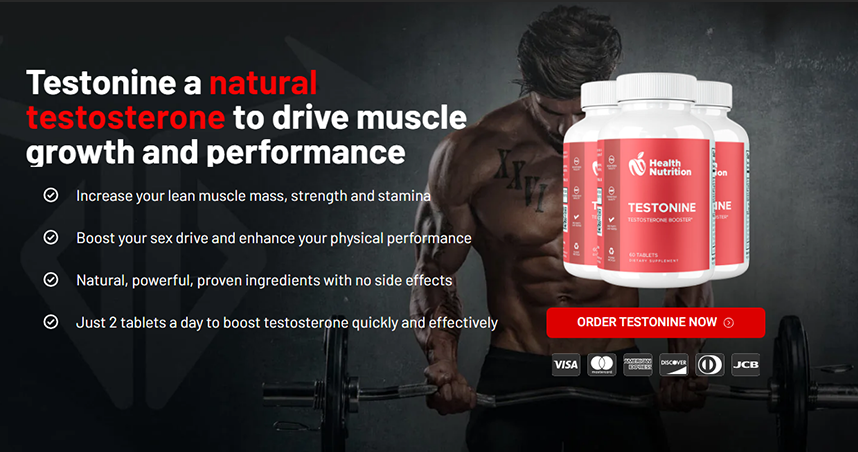
Your journey to muscle growth isn’t just about lifting heavy weights—it’s also about fueling your body with the right nutrients. Testosterone, often called the muscle-building hormone, plays a critical role in protein synthesis, recovery, and overall physical performance. But did you know that the food you eat can directly impact your testosterone levels?
Contents
Eggs: The Perfect Protein Package
Eggs are a powerhouse of nutrients that support testosterone production. Packed with protein, healthy fats, and cholesterol, eggs provide the building blocks your body needs to create testosterone.
Why Cholesterol Matters
Cholesterol often gets a bad rap, but it’s a crucial precursor for testosterone synthesis. The yolks in eggs are particularly rich in cholesterol, making them a fantastic choice for boosting hormone levels.
How to Incorporate Eggs
Start your day with scrambled eggs and spinach or prepare a protein-packed omelet with avocado and tomatoes. For variety, hard-boil eggs for a convenient snack on the go.
Example
Mike, a 30-year-old gym enthusiast, began eating three eggs for breakfast daily. Within weeks, he noticed increased energy during workouts and improved muscle definition.
Fatty Fish: Omega-3 for Hormonal Health
Fatty fish like salmon, mackerel, and sardines are rich in omega-3 fatty acids, which support testosterone production and overall hormonal balance.
The Role of Omega-3s
Omega-3 fatty acids reduce inflammation and lower cortisol levels, both of which can negatively impact testosterone. They also improve cardiovascular health, ensuring your muscles get the oxygen and nutrients they need during intense workouts.
How to Include Fatty Fish
Enjoy grilled salmon for dinner or add sardines to a salad for a quick, nutritious meal. Aim for two servings of fatty fish per week to maximize the benefits.
Example
Sarah, a 35-year-old CrossFit competitor, started incorporating salmon into her diet twice a week. She reported improved recovery times and better endurance during her sessions.
Spinach: A Leafy Green Powerhouse
Popeye wasn’t wrong—spinach is a nutritional powerhouse that can support testosterone production. It’s rich in magnesium, a mineral critical for testosterone synthesis.
Magnesium and Free Testosterone
Magnesium helps increase free testosterone by binding to sex hormone-binding globulin (SHBG), which otherwise limits testosterone availability. Spinach is one of the best natural sources of this mineral.
Adding Spinach to Your Diet
Blend spinach into smoothies, sauté it as a side dish, or toss it into salads for an easy testosterone-friendly meal. Spinach pairs well with eggs, making it an ideal addition to your breakfast.
Example
Tom, a 28-year-old lifter, added spinach to his daily diet. He noticed reduced fatigue during workouts and better post-exercise recovery.
Oysters: Nature’s Testosterone Booster
Oysters are famous for their aphrodisiac properties, but they’re also one of the best foods for boosting testosterone. They’re loaded with zinc, an essential mineral for hormone production.
Why Zinc is Critical
Zinc plays a direct role in testosterone synthesis and helps regulate hormone levels. A deficiency in zinc can lead to reduced testosterone and impaired muscle growth.
How to Enjoy Oysters
Eat oysters raw with a squeeze of lemon for a quick zinc boost, or add them to seafood stews and pasta dishes for a hearty meal. If oysters aren’t your thing, consider zinc supplements as an alternative.
Example
Dave, a 40-year-old powerlifter, began eating oysters once a week and saw noticeable improvements in his strength and recovery.
Avocados: The Healthy Fat Hero
Avocados are rich in monounsaturated fats, which are essential for hormone production, including testosterone.
Monounsaturated Fats and Hormone Health
These fats help your body produce testosterone and reduce levels of bad cholesterol, ensuring a healthier balance for overall performance.
Easy Ways to Use Avocados
Add sliced avocado to your morning toast, blend it into smoothies, or use it as a creamy topping for salads and tacos. Its versatility makes it a staple for testosterone-friendly diets.
Example
Lisa, a 32-year-old yoga instructor, started eating half an avocado daily. She noticed improved energy levels and better performance in her workouts.
Nuts and Seeds: Snack Smart for Gains
Nuts and seeds, such as walnuts, almonds, and pumpkin seeds, are rich in healthy fats, zinc, and magnesium—key nutrients for testosterone production.
Pumpkin Seeds for Zinc
Pumpkin seeds, in particular, are an excellent source of zinc. A handful of these seeds can provide a significant portion of your daily zinc needs.
Incorporating Nuts and Seeds
Snack on a mix of nuts and seeds during the day or add them to oatmeal and yogurt for an easy testosterone-boosting meal.
Example
Mark, a 25-year-old personal trainer, replaced chips with a nut and seed mix. His clients even started noticing his renewed energy and focus during sessions.
Pomegranates: The Antioxidant King
Pomegranates are rich in antioxidants, which support cardiovascular health and testosterone production.
Improved Blood Flow and Hormonal Balance
The antioxidants in pomegranates improve blood flow, ensuring that nutrients reach your muscles during workouts. They also help reduce oxidative stress, which can negatively impact hormone levels.
How to Add Pomegranates
Drink pomegranate juice, add the seeds to salads, or enjoy them as a snack. Their natural sweetness makes them a delicious addition to your diet.
Example
Sam, a 38-year-old marathon runner, included pomegranate juice in his diet and reported better endurance and faster recovery times.

